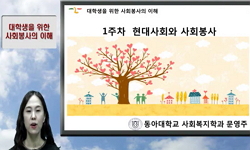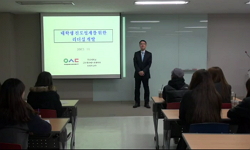Objectives:The aim of study was to estimate the prevalence of poor sleep quality and depressive symptoms as well as to examine the moderating effect of positive psychology on the relationship between poor sleep quality and depressive symptoms among ...
http://chineseinput.net/에서 pinyin(병음)방식으로 중국어를 변환할 수 있습니다.
변환된 중국어를 복사하여 사용하시면 됩니다.
- 中文 을 입력하시려면 zhongwen을 입력하시고 space를누르시면됩니다.
- 北京 을 입력하시려면 beijing을 입력하시고 space를 누르시면 됩니다.

대학생들의 수면의 질과 우울증상과의 관계 = The Relationship between Sleep Quality and Depressive Symptoms among University Students : Moderating Effect of the Positive Psychology
한글로보기https://www.riss.kr/link?id=A105630340
- 저자
- 발행기관
- 학술지명
- 권호사항
-
발행연도
2018
-
작성언어
Korean
- 주제어
-
등재정보
KCI등재
-
자료형태
학술저널
-
수록면
173-183(11쪽)
- DOI식별코드
- 제공처
- 소장기관
-
0
상세조회 -
0
다운로드
부가정보
다국어 초록 (Multilingual Abstract)
Methods:A total of 2,338(1,071 male and 1,267 female) university students at seven universities of four cities in Korea were randomly selected to participate in a survey. Data were collected by self-report questionnaires, including Pittsburgh Sleep Quality Index(PSQI), Beck Depression Inventory(BDI), Satisfaction with Life Scale(SWLS), Positive Psychotherapy Inventory(PPTI), and sociodemographic characteristics.
Results:The prevalence was 44.8% for poor sleep quality and 14.4% for depressive symptoms among Korean university students. By moderated regression analysis, the results showed that poor sleep quality(β=0.453, p<0.001) aggravated depressive symptoms of university students, and life satisfaction(β=-0.087, p<0.001) and happiness(β=-0.145, p<0.001) respectively buffered the negative effect of the poor sleep quality on depressive symptoms.
Conclusion:This study showed very high prevalence of poor sleep quality and depressive symptoms among Korean university students. Overall, these findings demonstrates that positive psychology can be effective in the enhancement of subjective and psychological well-being and may help to reduce depressive symptom levels. In the context of public health, positive psychology can be used as preventive, easily accessible and non-stigmatizing tools.
Objectives:The aim of study was to estimate the prevalence of poor sleep quality and depressive symptoms as well as to examine the moderating effect of positive psychology on the relationship between poor sleep quality and depressive symptoms among Korean university students.
Methods:A total of 2,338(1,071 male and 1,267 female) university students at seven universities of four cities in Korea were randomly selected to participate in a survey. Data were collected by self-report questionnaires, including Pittsburgh Sleep Quality Index(PSQI), Beck Depression Inventory(BDI), Satisfaction with Life Scale(SWLS), Positive Psychotherapy Inventory(PPTI), and sociodemographic characteristics.
Results:The prevalence was 44.8% for poor sleep quality and 14.4% for depressive symptoms among Korean university students. By moderated regression analysis, the results showed that poor sleep quality(β=0.453, p<0.001) aggravated depressive symptoms of university students, and life satisfaction(β=-0.087, p<0.001) and happiness(β=-0.145, p<0.001) respectively buffered the negative effect of the poor sleep quality on depressive symptoms.
Conclusion:This study showed very high prevalence of poor sleep quality and depressive symptoms among Korean university students. Overall, these findings demonstrates that positive psychology can be effective in the enhancement of subjective and psychological well-being and may help to reduce depressive symptom levels. In the context of public health, positive psychology can be used as preventive, easily accessible and non-stigmatizing tools.
동일학술지(권/호) 다른 논문
-
- 대한생물치료정신의학회
- 천은진(Eun-Jin Cheon)
- 2018
- KCI등재
-
- 대한생물치료정신의학회
- 이상신(Sang-Shin Lee)
- 2018
- KCI등재
-
- 대한생물치료정신의학회
- 김상은(Sang-Eun Kim)
- 2018
- KCI등재
-
- 대한생물치료정신의학회
- 강한고은비(Hangoeunbi Kang)
- 2018
- KCI등재




 KCI
KCI DBpia
DBpia







